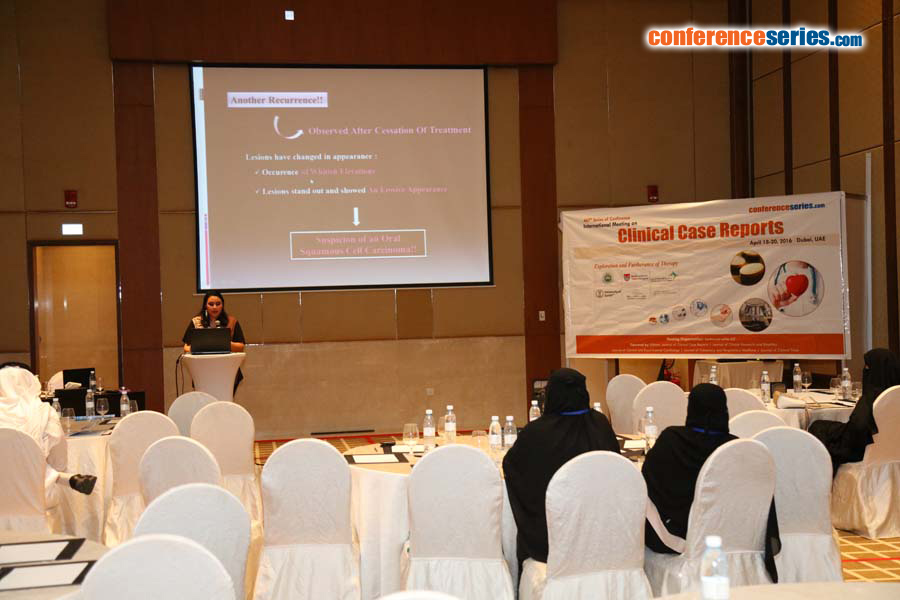
Narjiss Akerzoul
Mohammed V University, Morocco
Title: Malignant transformation of erosive oral mucosal lichen planus to oral squamous cell carcinoma
Biography
Biography: Narjiss Akerzoul
Abstract
Introduction: Oral mucosal lichen planus (OMLP) is a chronic inflammatory skin disease, usually benign that affects all areas of the oral mucosa. Its diagnosis is based on the clinical examination and histological analysis. The erosive form presents a risk of malignant transformation from 0.3% to 3%, justifying the strict surveillance of the disease and effective treatment of relapses. Case Report: A 65 years old woman, without specific and non smoking history, reported to the Oral Surgery Department of the Consultation Center of Dental Treatments of Rabat, presenting oral lesions lasting for four years. The intraoral examination revealed the presence of white lesions in the form of plates sitting on the entire right side edge of the tongue with the presence of gingival ulceration in relation to the right premolar-molar area. A biopsy was performed and concluded an erosive oral lichen planus. A first-line treatment combining local corticosteroids and retinoids has been set up; however, a recurrence occurred 7 months after treatment. Another biopsy was performed and concluded an invasive oral squamous cell carcinoma. The patient was referred to the Maxillofacial Surgery Department for expansion and adequate management. Discussion: Malignant transformation of the OMLP is rare and remains a subject of controversy despite numerous studies that have been devoted. It occurs most often on the atrophic and erosive forms. Several assumptions have been suggested to explain this malignant transformation but the chronic inflammation seems to be the key factor. Tobacco and alcohol are well known carcinogenic factors, may contribute to the malignant transformation of the OMLP but it turns out that this disease affects mostly women who have no-smoking Ethylo intoxication. So there must be other factors. The Candida infection and the expression of certain tumor suppressor genes may lead to the malignant transformation of OMLP






